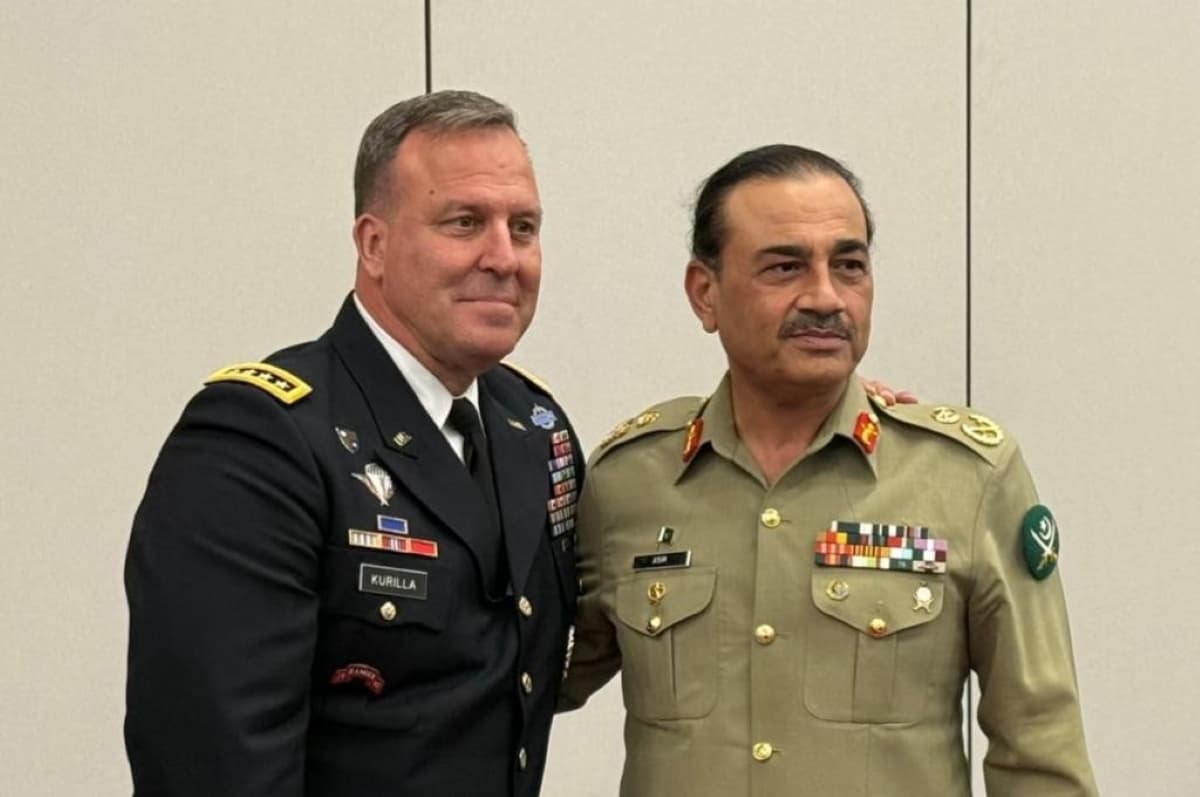UPDATE: In a dramatic shift, the United States is bolstering its ties with Pakistan even as the country’s military chief, Field Marshal Asim Munir, consolidates power, raising alarms over potential authoritarianism. This urgent development comes as October 9, 2023, marked a significant increase in military operations in Afghanistan, further complicating regional dynamics.
Amid a backdrop of deteriorating relations with India, Washington’s renewed engagement with Islamabad is underscored by Munir’s recent ascension within the military hierarchy. Just last week, Pakistan’s parliament passed a sweeping constitutional amendment, granting Munir enhanced authority and lifetime immunity from arrest or prosecution. This law, signed into effect on October 5, 2023, entrenchment of military control raises serious concerns about the future of democracy in Pakistan.
As the U.S. seeks to strengthen military and economic ties with Pakistan, officials have welcomed Munir to the White House multiple times in recent months, indicating a shift in Washington’s approach toward the region. Analysts warn that this could signal an alarming trend of overlooking Pakistan’s troubling support for terrorist organizations. Reports indicate that after India’s Operation Sindoor aimed at dismantling terror bases, Islamabad allegedly assisted groups like Jaish-e-Mohammed in relocating and rebuilding.
Observers noted that the Jaish-e-Mohammed held a recruitment rally under police protection in Khyber Pakhtunkhwa on September 14, 2023, raising questions about the military’s complicity. Furthermore, Indian authorities link Jaish-e-Mohammed to a deadly car-bomb explosion near Delhi’s Red Fort on November 10, 2023, which killed 13 and injured many more.
The U.S.’s current strategy appears to be a departure from previous attempts to democratize Pakistan, as officials prioritize military cooperation over democratic values. This shift has led to growing concerns that Washington is misjudging Pakistan’s role in counterterrorism. Islamabad’s influence in the region is waning, and its traditional strategic depth doctrine has failed, resulting in increased insecurity within its ruling elite.
The Taliban, once viewed as a controllable proxy by Pakistan, are shifting towards nationalist policies, complicating Islamabad’s foreign policy. Recent airstrikes on Taliban positions coincide with Afghanistan’s growing ties with India, reflecting Pakistan’s deepening isolation.
As tensions rise, the potential for territorial fragmentation looms, fueled by Pashtun resistance against Punjabi dominance. If Pashtun separatism gathers momentum, regions like Balochistan could follow suit, further destabilizing the country.
Amidst these developments, India is emerging as a dominant power in South Asia, capitalizing on its position as the world’s largest democracy and a burgeoning technological superpower. As the U.S. recalibrates its South Asia strategy, the implications of its relationship with Pakistan must be reconsidered. Supporting a country struggling with authoritarianism may undermine long-term regional stability and American interests.
The urgency of these developments cannot be overstated, as the implications for both Pakistan and the broader region are profound. As the U.S. engages with Pakistan, it must remain vigilant regarding the potential consequences of empowering a military regime that could exacerbate terrorism and instability.
Next steps: Observers will closely monitor the evolving U.S.-Pakistan relationship and its impact on regional security dynamics, particularly in relation to India and counterterrorism efforts.






